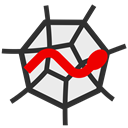Top Axiom Alternatives: Unlocking New Possibilities in Computational Mathematics
Axiom is a powerful general-purpose Computer Algebra system, highly valued for its robust type hierarchy, programming language, and built-in compiler, making it excellent for mathematical algorithm research and development. However, just like any specialized software, users often seek alternatives for various reasons – whether it's for different feature sets, platform compatibility, cost considerations, or specific project requirements. This article explores the best Axiom alternative options available today.
Discovering Top Axiom Alternatives
If you're looking to expand your toolkit beyond Axiom, or perhaps seeking a system better suited to a particular task, you're in the right place. We've compiled a list of excellent alternatives, each with unique strengths in computational mathematics, programming, and data analysis.

Wolfram Alpha
Wolfram Alpha stands out as a "Computational Knowledge Engine" that directly computes answers to factual queries. Unlike Axiom's focus on a mathematical programming environment, Wolfram Alpha provides instant answers through its built-in search engine, equation solving, and math-solver features. It's available on Freemium, Web, Android, iPhone, Windows Phone, iPad, and Kindle Fire, making it incredibly accessible for quick computations and factual checks.

GNU Octave
GNU Octave is a free and open-source software program designed for numerical computations, highly compatible with MATLAB. If you're accustomed to a MATLAB-like environment but are looking for a free Axiom alternative, Octave is an excellent choice. It's available across Mac, Windows, Linux, and BSD platforms and includes features like ANOVA testing, making it ideal for statistical and numerical analysis.

MATLAB
MATLAB is an enterprise-class computing environment and programming language primarily used for numerical computation. While commercial, it's a powerful Axiom alternative for those requiring extensive libraries for engineering, science, and finance. It supports Mac, Windows, Linux, Web, Android, iPhone, and iPad, and offers features like Simulink, batch plotting, and an embedded debugger, providing a comprehensive solution for complex computational tasks.

R (programming language)
R is a free and open-source software environment specifically designed for statistical computing and graphics. As a GNU project, it's a superb Axiom alternative for data analysis, statistical modeling, and graphical representation. Available on Mac, Windows, Linux, and BSD, R features automatic data loading and data mining capabilities, making it a go-to for statisticians and data scientists.

Sage
Sage is a free, open-source mathematics software system licensed under the GPL, making it an excellent open-source Axiom alternative. It uniquely combines the power of many existing open-source packages into a common Python-based interface. Sage runs on Mac, Windows, Linux, and Web platforms and offers robust symbolic computation capabilities, ideal for various mathematical research and educational purposes.

Mathematica
Mathematica is a definitive commercial technical computing system covering a vast array of functionalities including machine learning, neural networks, data science, and visualizations. For those needing a comprehensive, enterprise-grade Axiom alternative, Mathematica provides powerful symbolic computation, calculus solving, constructive geometry, equation solving, graphing calculator, algebra, and graphical component features across Mac, Windows, Linux, and Web platforms.

Scilab
Scilab is a free and open-source scientific software package for numerical computations, providing a powerful open computing environment for engineering and scientific applications. As a direct open-source Axiom alternative for numerical tasks, Scilab is available on Mac, Windows, and Linux, offering a robust platform for simulations and data analysis.

Spyder
Spyder (formerly Pydee) is a free and open-source Python development environment that provides MATLAB-like features in a lightweight package. If your work in Axiom relies heavily on its programming capabilities and you're seeking a Python-centric Axiom alternative, Spyder is an excellent choice. It functions as a powerful Python IDE on Mac, Windows, and Linux.

Maxima
Maxima is a free and open-source system for the manipulation of symbolic and numerical expressions, including differentiation, integration, Taylor series, and Laplace transforms. As a strong open-source Axiom alternative focused on symbolic computation and algebra, Maxima is available on Mac, Windows, and Linux.

Julia
Julia is a free, open-source, high-level, high-performance dynamic programming language specifically designed for technical computing. With syntax familiar to users of other technical computing languages, Julia serves as a powerful Axiom alternative for those prioritizing speed and parallel computing. It supports automatic JIT compilation, features a built-in compiler, and is available on Mac, Windows, and Linux.
Choosing the right Axiom alternative depends heavily on your specific computational needs, budget, and preferred platform. Whether you require advanced symbolic computation, numerical analysis, statistical programming, or a general-purpose scientific environment, the options listed above offer diverse capabilities to help you achieve your mathematical and analytical goals.